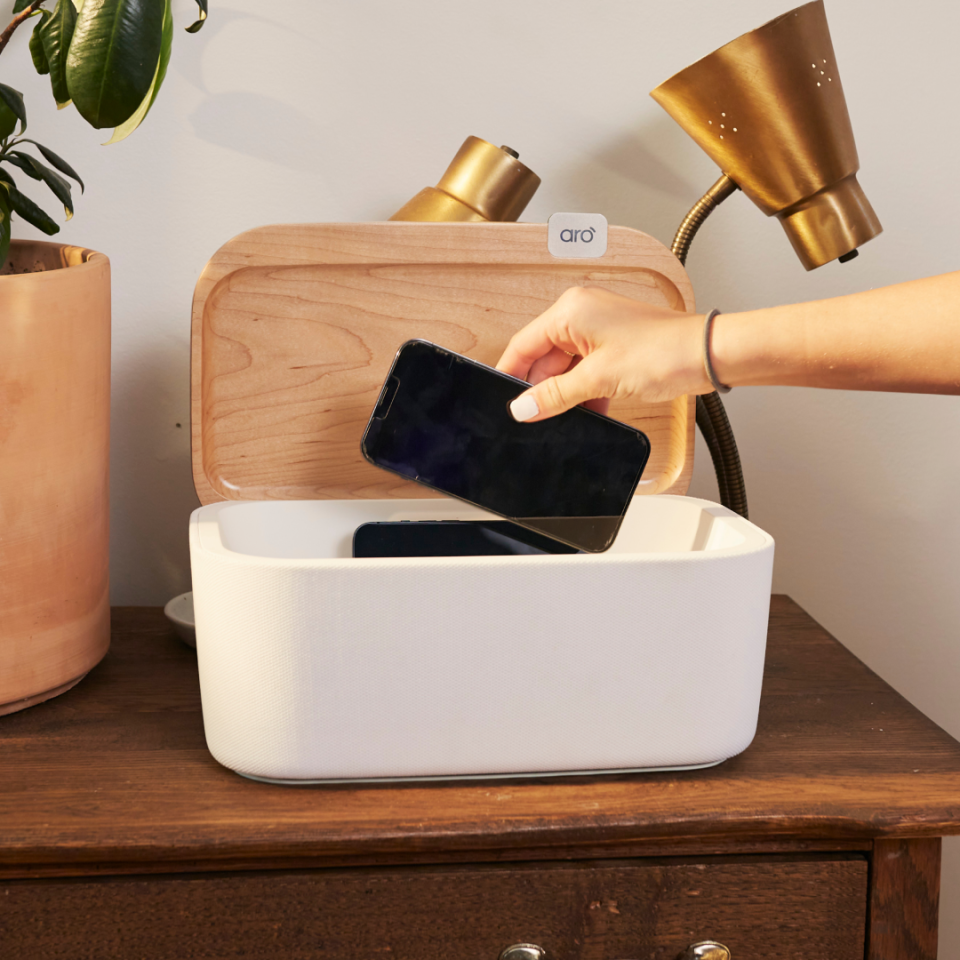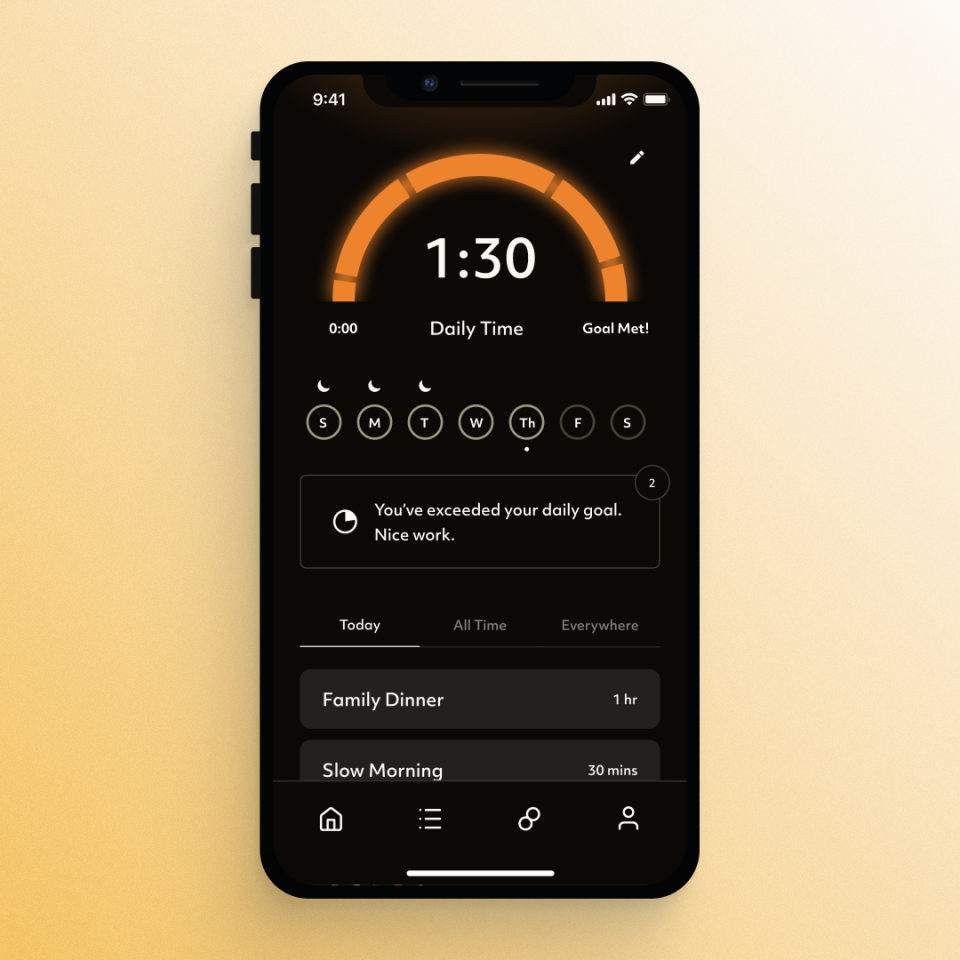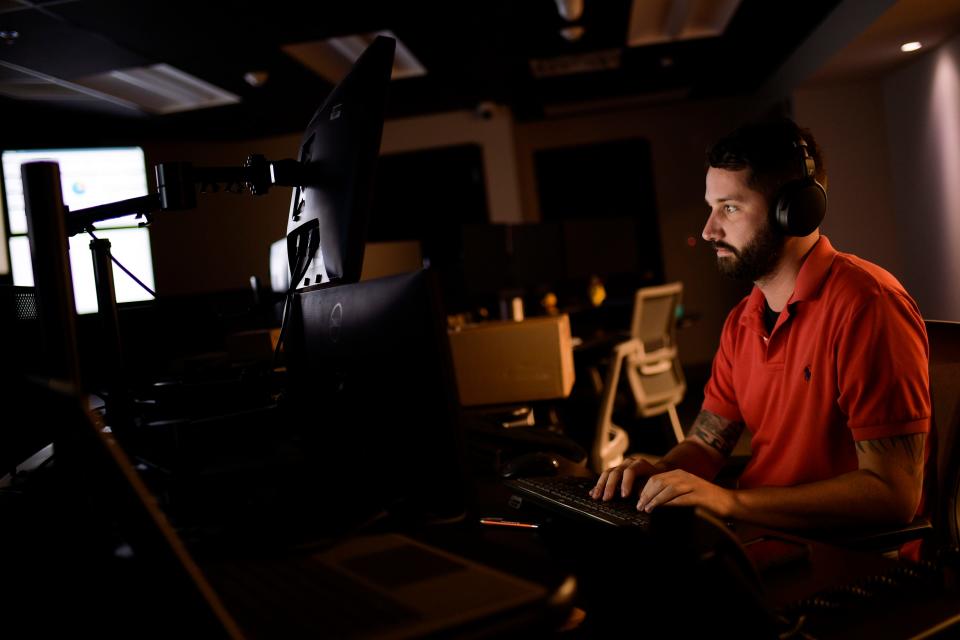Technology and innovation are in Knoxville's DNA; these businesses are keeping that alive
Some of East Tennessee's biggest stakeholders, from the University of Tennessee at Knoxville to Oak Ridge National Laboratory, have a lot riding on the tech industry.
We all do. Tech occupations are projected to grow 13% from 2020 to 2030, which is the fastest average among all other occupations, according to the Bureau of Labor Statistics.
Techstars' Industries of the Future accelerator brought some innovative technology companies to Knoxville, but many growing tech companies already call Knoxville and East Tennessee home. Here are a few you should know.
More: From smartphone skin care to hacker trackers, the Techstars startups could change our world
More: Has the Techstars startup accelerator impacted Knoxville's economy as investors hoped?
Aro
Heath Wilson, a University of Tennessee at Knoxville alumnus from Johnson City, is an entrepreneur, father and mentor to young entrepreneurs. That also means he's on his phone like green on grass.
Wanting to spend less time with his phone and more time with his family, while also setting an example for his middle school-aged children, he began working on a solution.
He cut a hole in a shoe box, stuck some charging cables inside and designated it as the place phones go when they weren't being used. After years of designing and planning, Aro was born.

Aro is a box for families to place their devices in while not using them. As soon as the devices are in, their time spent inside is tracked and logged. The box also charges the devices.
Wilson said he played around with ideas for an app to track time away from a device, but ultimately decided that "you can't put the solution to this problem inside of the problem." He also didn't want a heavy-handed solution that forced you to lock up your phone all day.
"We concept around this idea of a place for your phone. An intuitive visual cue that becomes habit forming," Wilson said. "Whenever you don't need it, you put it there and you take some time away."
Wilson said Aro can "gamify" putting your phone away. You may not want to break your streak for a quick scroll through Instagram, or you might want to beat a family member's streak.
The company is currently operating out of the University of Tennessee Research Facility Business Incubator on E.J. Chapman Drive.
Right now, Wilson said the company is only taking pre-orders, but the first batch of units will ship this fall.
Aro is slightly smaller than a shoe box, with dimensions of 12.5” x 8” x 5.5”. The box costs $349, with a monthly subscription fee of $9.99 to use the tracking app. Aro ships with a free six-month subscription.

Lirio
The vast majority of the $4.1 trillion the U.S. spends on health care every year, according to Lirio CSO Patrick Hunt, goes toward treating preventable diseases.
Lirio wants to change that.
Using behavioral science and artificial intelligence, Lirio sends content, like a text or email, to patients, nudging them to schedule and attend an appointment for a routine procedure like a mammogram. The messages come from the medical group using the AI.
The AI tracks what forms of communication best gets people to make and show up to an appointment. Hunt called it "precision nudging." It's one of the biggest challenges facing the health care industry, he said.
"We have a team of behavioral scientists who do the research to understand what are the scientifically understood barriers to people adopting behaviors," Hunt said. "So we understand what the science says about why people do or don't do the things that would let them lead a healthier life."
Health care facilities will provide data points (like people following through with an appointment) to Lirio. The data is used to see what forms of content nudge people to go to certain screenings.
Hunt described the service as a "win-win-win." The patients get the peace of mind of a diagnosis, hospitals can generate more revenue and Lirio can grow and impact more lives.
Hospitals saw a downturn in visits for routine checkups during the pandemic, and Hunt said Lirio wants to break that trend and re-engage people with the health care system.
"If we could just get people to live healthier lives and take healthier action, then we can have a huge impact on quality of life," Hunt said.
Lirio is headquartered in Cedar Bluff on 320 Corporate Drive North West.
RDI Technologies
The slightest movement in a machine could be the difference between business as usual or a temporary production shutdown.
While the naked eye can't detect these movements, RDI Technologies is turning cameras into sensors that can.
RDI developed a software that turns every pixel of a camera into a sensor. These cameras have more than 2 million data points to detect vibration and movement. If set in front of a piece of equipment, the software can detect and alert the company of potential malfunctions that need to be addressed.
"Downtime in any sort of manufacturing and production is crucial, because every time your equipment is down, it costs you money," COO and co-founder Jenna Johns said. "When you're producing, you're not making money, you're actually costing money."
The company initially launched its Motion Amplification software in 2016, but Johns said the team noticed a need for a more comprehensive package. Now, RDI sells complete kits with cameras, lenses and lighting elements and a computer to process the data.
After developing the technology at the University of Louisville, Johns said the company moved its operations to Knoxville to be in an area that understands industrial problems and take advantage of a deep talent pool.
Johns said RDI has multiple Fortune 500 companies in its clientele, as well as national organizations like NASA, Hyundai and KIA. They've also partnered with large local companies like the Tennessee Valley Authority.
RDI currently employs 47 people, but Johns said the company is looking to add about 10 new employees this year. She also said the company is looking to acquire some new companies and significantly grow the business, trying to triple or quadruple revenue.
Sky Nano
Carbon is an essential material needed to make batteries for items we use every day, like cars and phones.
But while working on her Ph.D. at Vanderbilt University, SkyNano CEO and co-founder Anna Douglas said she and her team found there wasn't a sustainable way to obtain it. And the carbon burden from emissions could only be offset if the battery could live a "very, very long time."
More: How a Knoxville startup is turning local pollution into 'black gold'
"I felt like this was something that wasn't really being highlighted enough and not a lot of consumers were really aware of this component of a lot of clean energy technologies," Douglas said. "I started looking at other ways to make materials that go into batteries."
After that, SkyNano was born and incubated at Oak Ridge National Laboratory as part of the Department of Energy Funded Innovation Crossroad program.
The company chemically captures carbon dioxide from the air using metal oxide, which has a high uptake and affinity for the gas, forming carbonate. That is then electrochemically decomposed, forming solid carbon. Oxygen and metal oxide are also byproducts, which are used to capture more carbon.
The solid carbon that's produced is then sold to battery companies, or really anybody who needs it.
"Carbon has such a range of value, everything from the really cheap carbon that's in a Brita filter, all the way to diamond," Douglas said. "We said we really need to be able to home in on forming very specific precise carbon structures in order to make sure that they have a value in the marketplace."
Right now, SkyNano is pulling carbon dioxide from its lab in the UT Institute for Advanced Materials and Manufacturing, but also has a partnership with TVA to capture the gas out of their flue gas stream.
But while the operation is small and the company continues to scale up, Douglas said it has the potential to offset a gigaton of emissions between capturing carbon and offsetting additional manufacturing emissions.
TenHats

Business owners have to wear many hats to make sure things run smoothly. They need to be able to mange their employees, balance the books and maintain product quality.
Wearing the hat of an IT expert takes a lot of energy, and that's where TenHats comes in.
"The name is kind of emblematic of what we do ... a CFO or even a business owner in a small business, everybody wears 10 hats," said CEO and UT alumnus Brian Strong. "So can we take the IT hat, their IT burden, off of those small businesses so they can focus on what they need to grow."
The company started in 2016 as SH Data Technologies, and built the region's first colocation data center in 20 years, according to its website. In 2021, Strong said previous leadership retired, he became CEO and the name changed to reflect more of what the company wanted to do.
Having a physical data center, Strong said, allows TenHats to provide a myriad of services, depending on what the client needs, using a hybrid storage model. While some applications can be stored in the cloud, TenHats can store items like documents and photos in the data center.
TenHats currently has about 100 clients in the area in a variety of fields from medical companies to car dealerships to restaurants. Some big-name clients include Knoxville Pediatrics and Covenant Health.
TenHats' business grew 50% last year, and Strong expects that trajectory to continue and for the company to grow another 40-50% this year.
Purple Mouse Smart House
Pee Jay Alexander, a self-described technology evangelist and enthusiast, wants people to be able to talk to their home like it's Iron Man's suit. So in July 2020, he founded Purple Mouse Smart House.
Purple Mouse provides products, installation and maintenance services to turn your regular home into a smart one.
After spending 20 years in IT, Alexander began adding smart devices to his home. While it became second nature for his family to talk to the house, guests were bewildered and asked him for help.
"We want to be here for not only smart home automation, but for any of your home technology needs," he said. "I know that there's a gap between your IT company and the smartest person in your family circle who knows technology."
If you want to turn your house into a smart home, Purple Mouse will do a "smart home assessment" to see what the home needs and where homeowners want smart technology. The first step is setting up stronger Wi-Fi to handle the new devices that will be added to the home.
As new smart devices are added to the home, like locks or lights, Purple Mouse will be be there with multiple lessons to teach you how to talk to your home.
"People underestimate the time it takes to set up or to be successful where you're not guessing, 'what's it gonna do this time?'" Alexander said. "It all has to set up, and naming... there's a bunch (that) goes into it."
Right now Purple Mouse's operation is small, having worked on about 30 homes. It's just Alexander working out of his home in Lenoir City with his brother-in-law, but he hopes to eventually open a retail store.
Silas Sloan: Covering growth and development in East Tennessee
Twitter: @silasloan| Email: silas.sloan@knoxnews.com
Support local journalism and enjoy subscriber perks. Visit knoxnews.com/subscribe.
This article originally appeared on Knoxville News Sentinel: A look at some innovative tech companies in Knoxville
